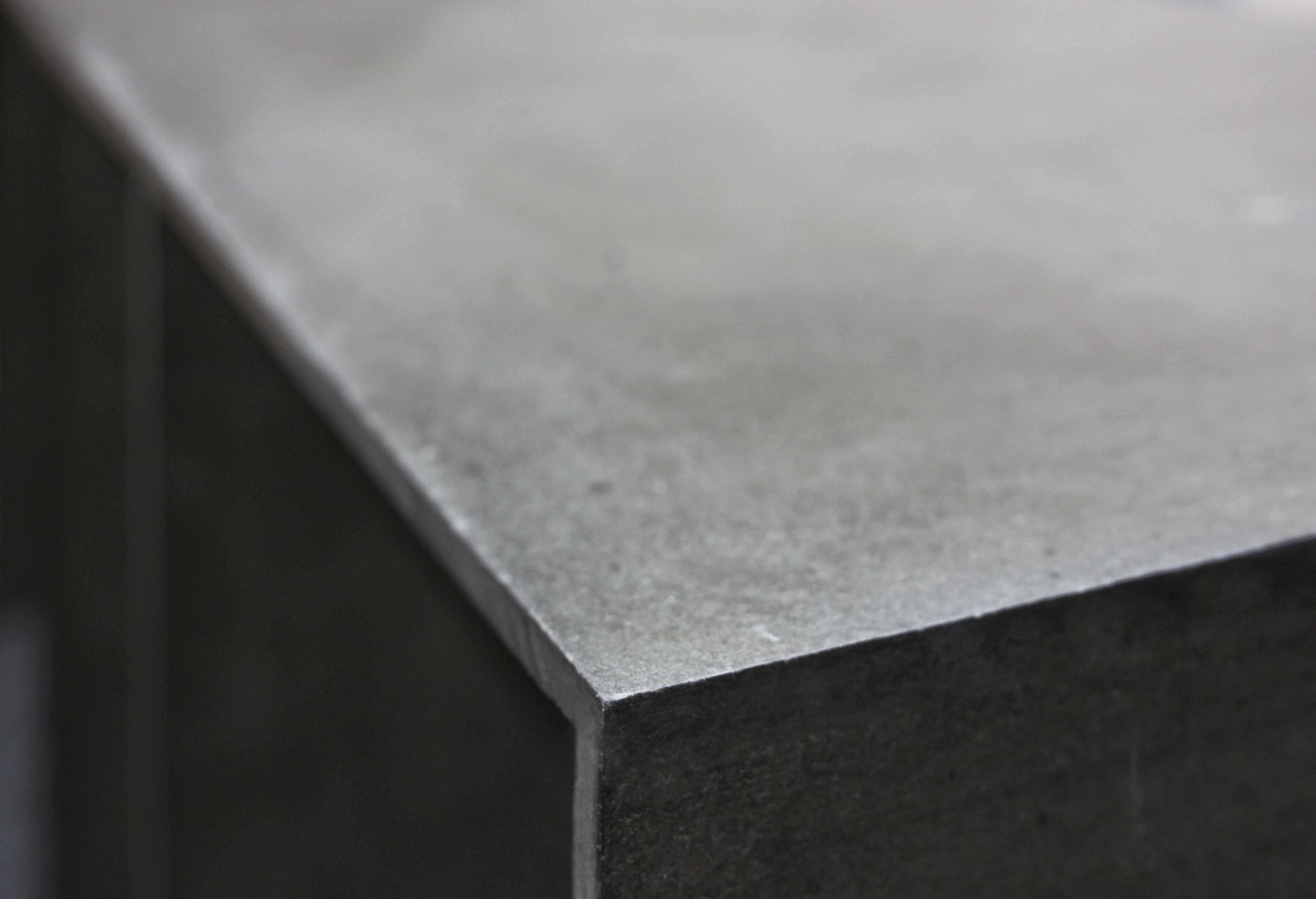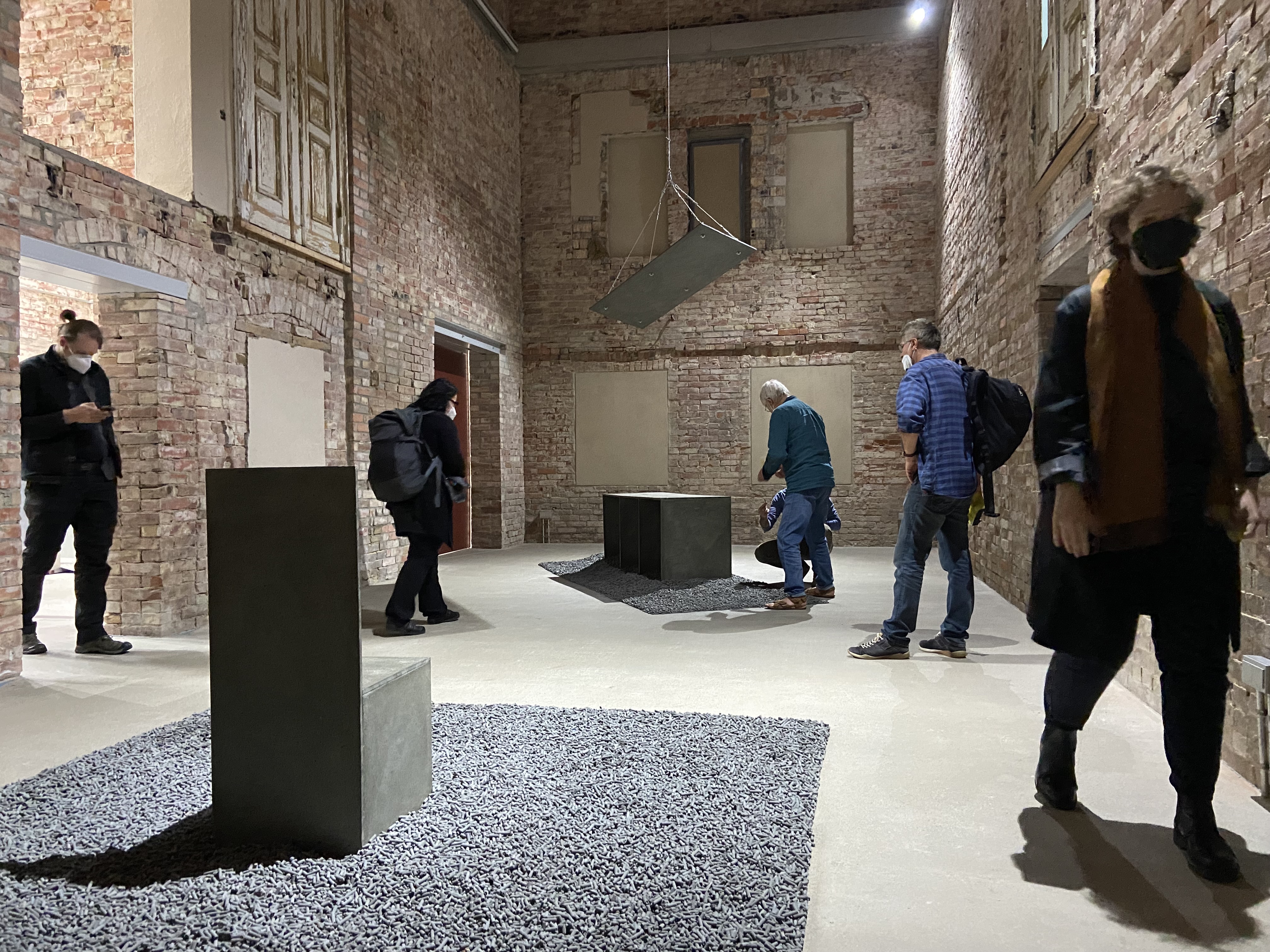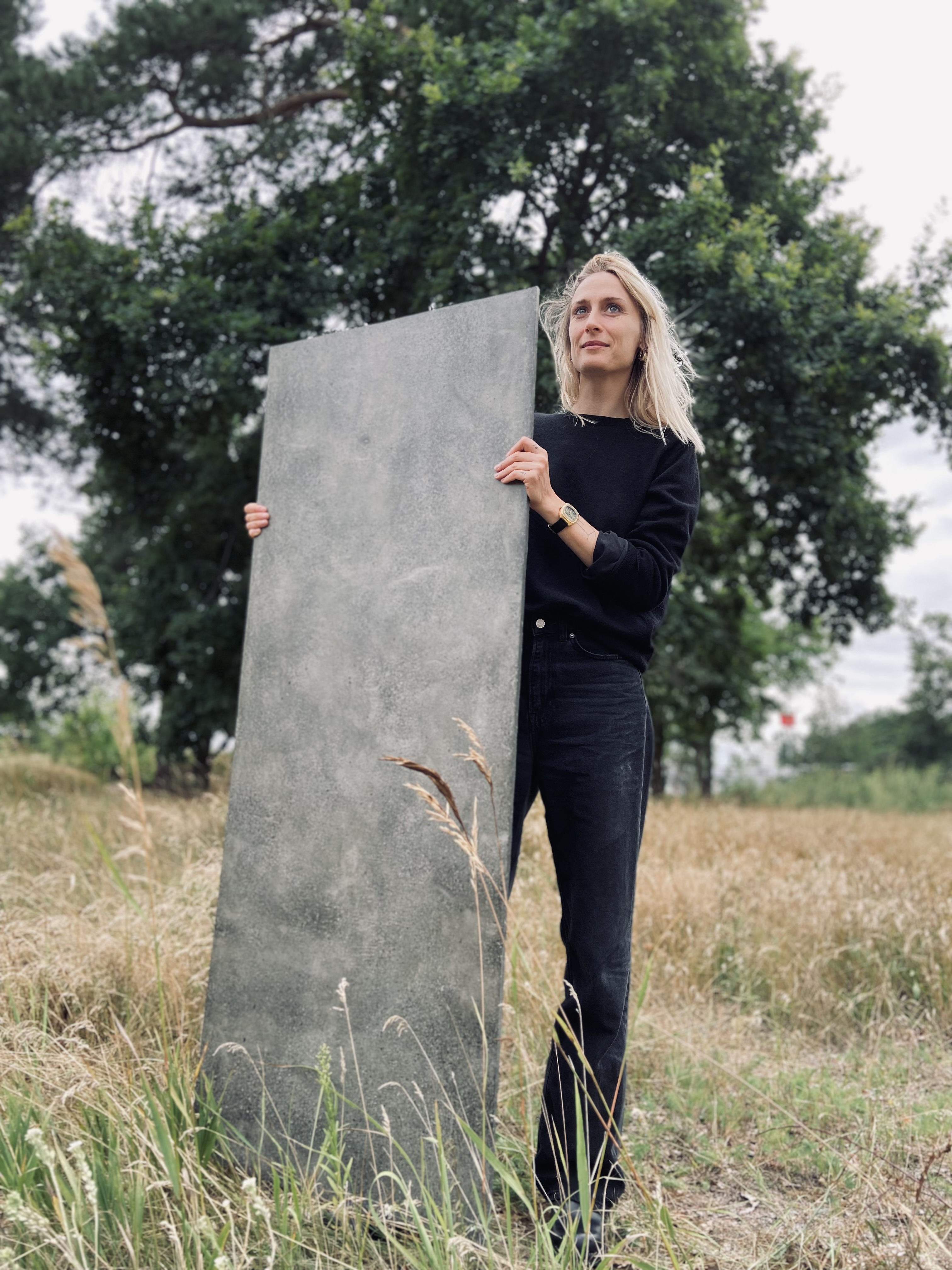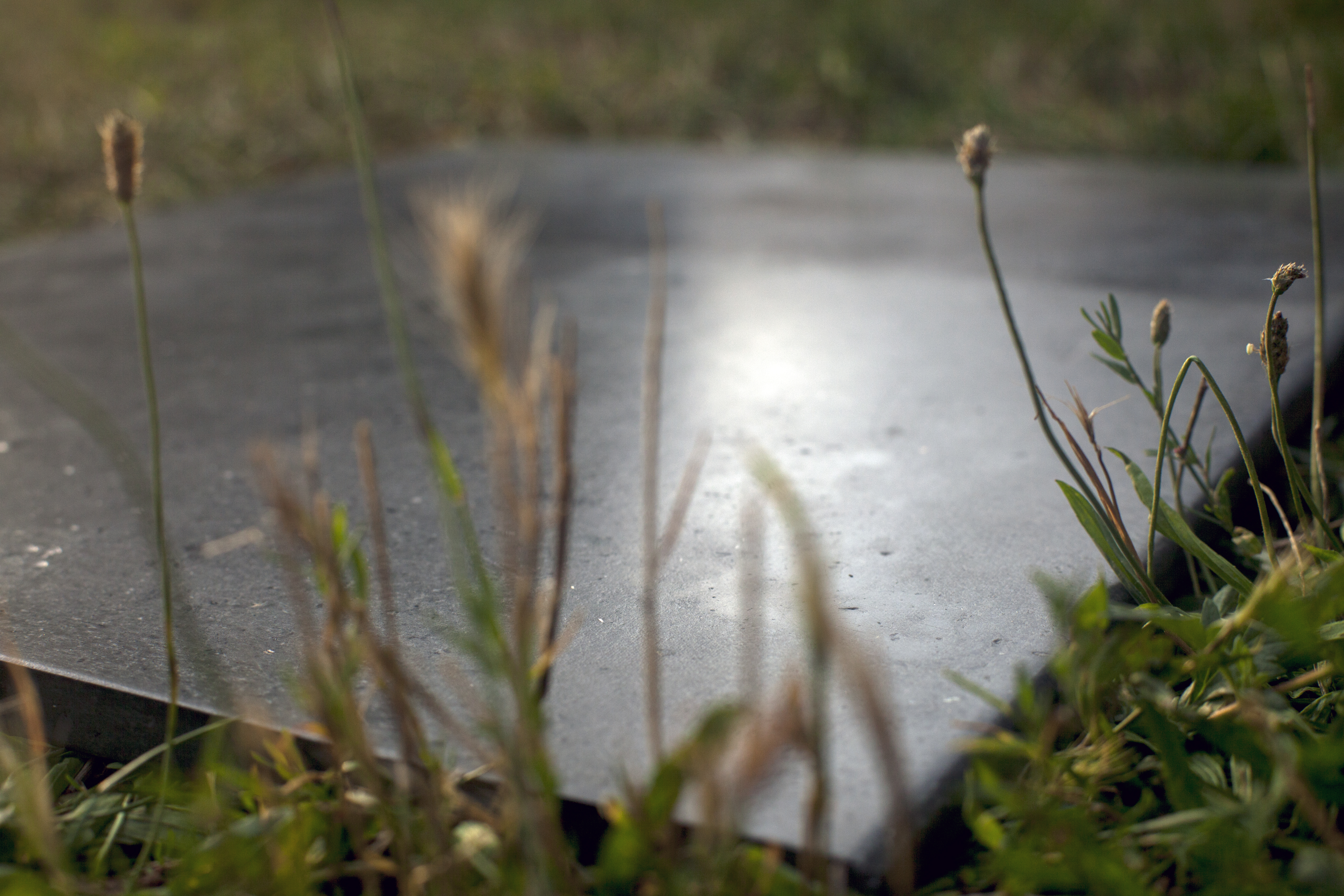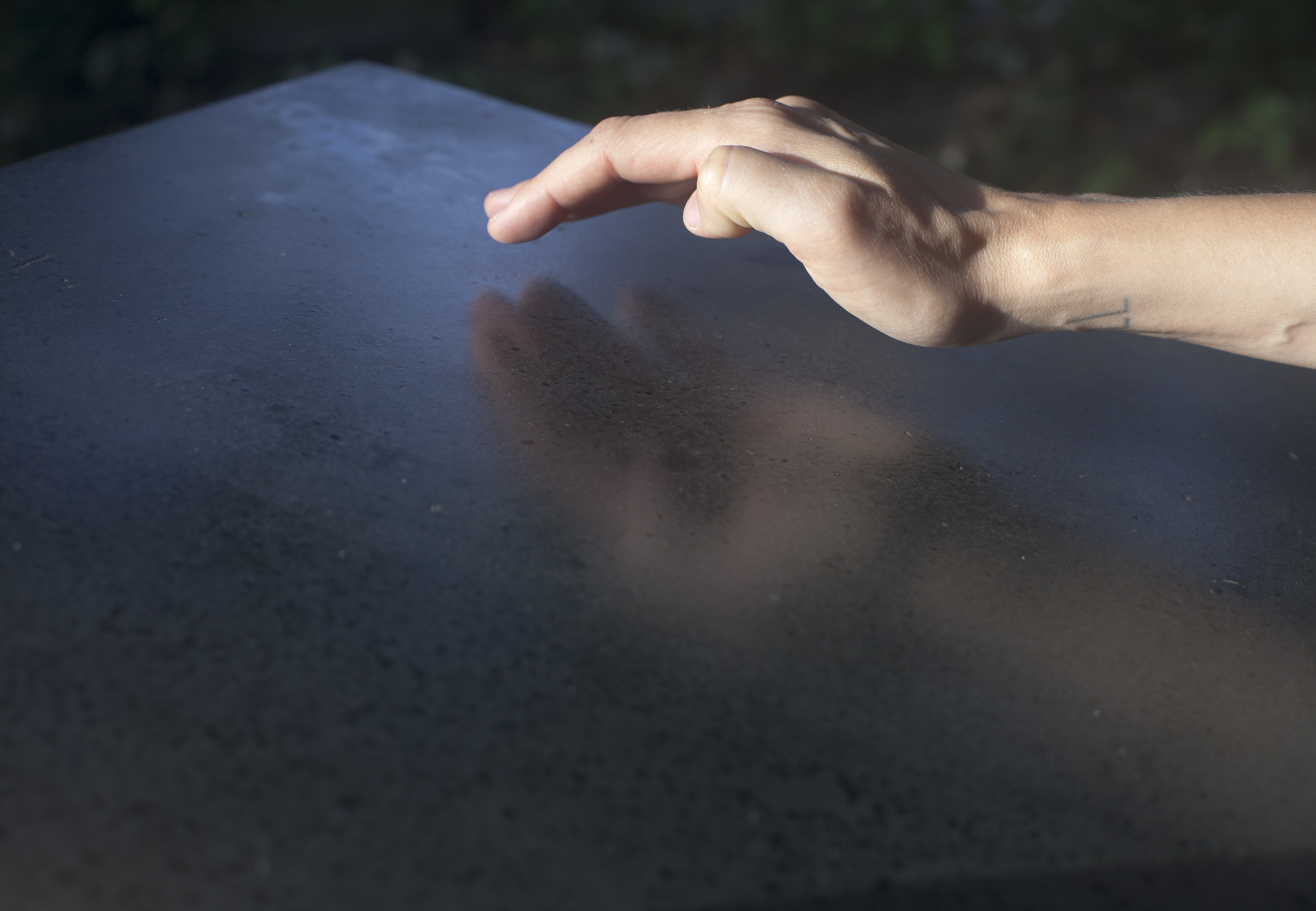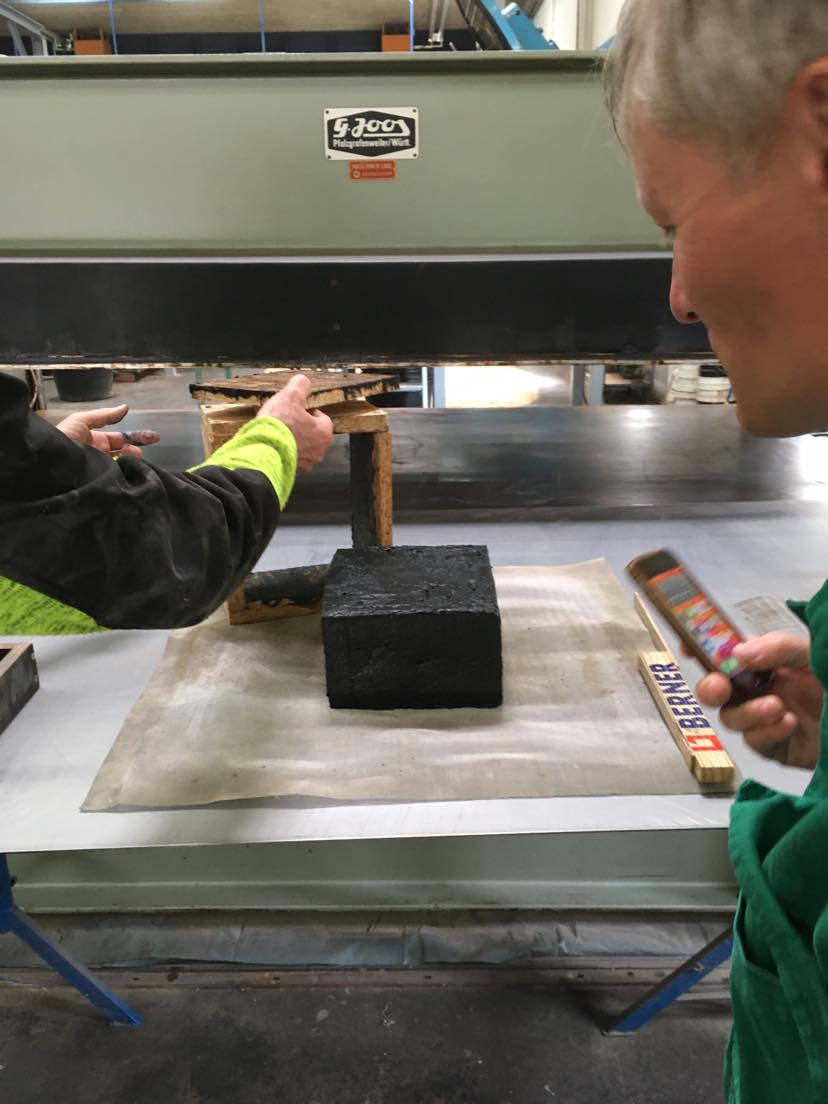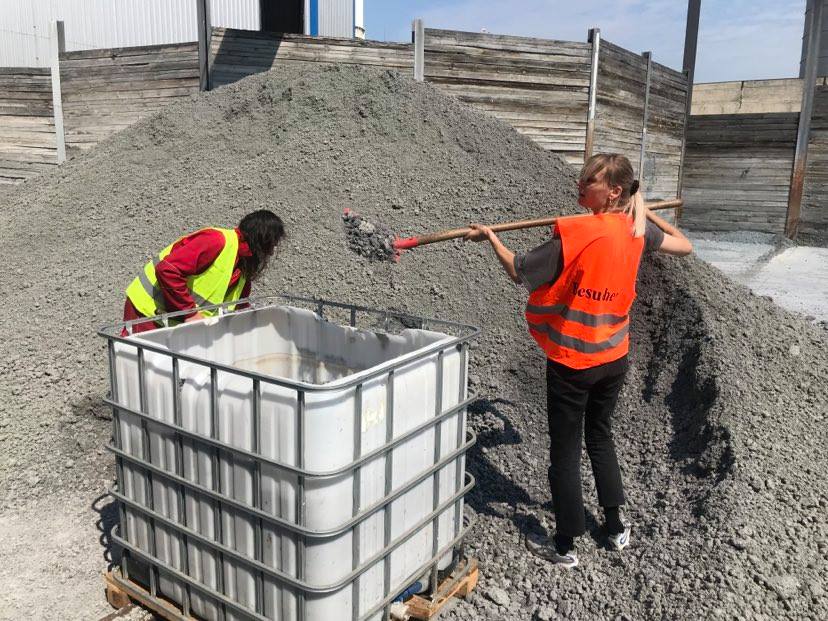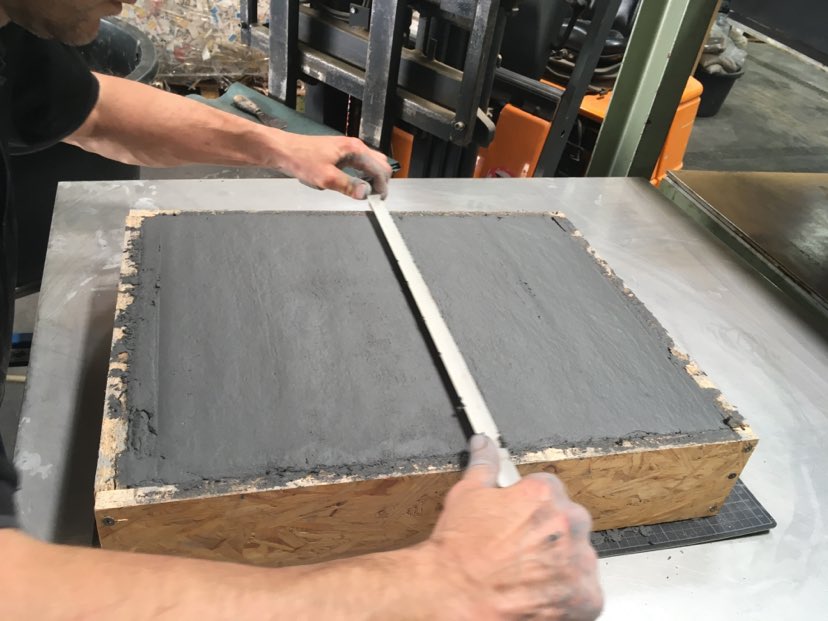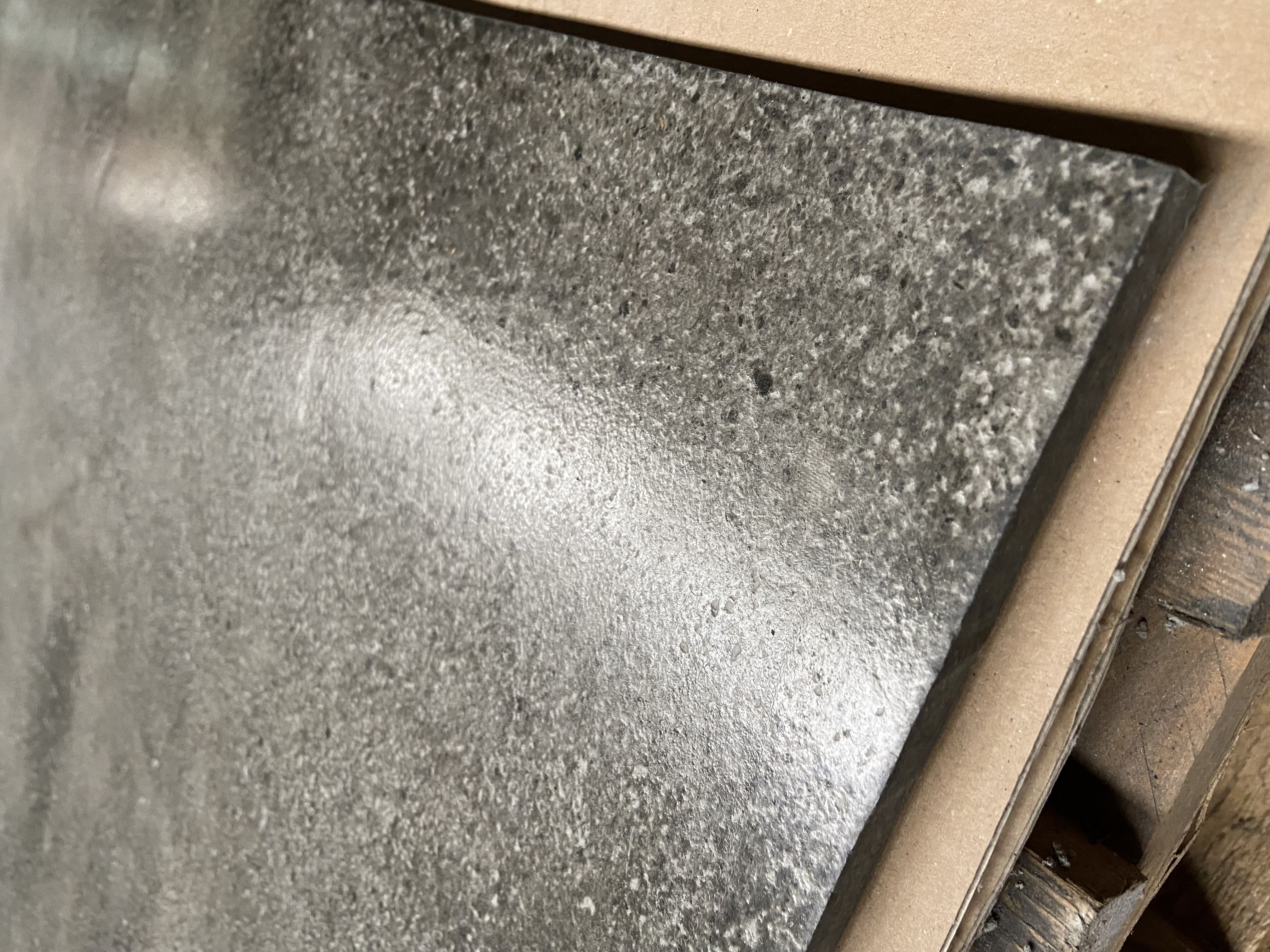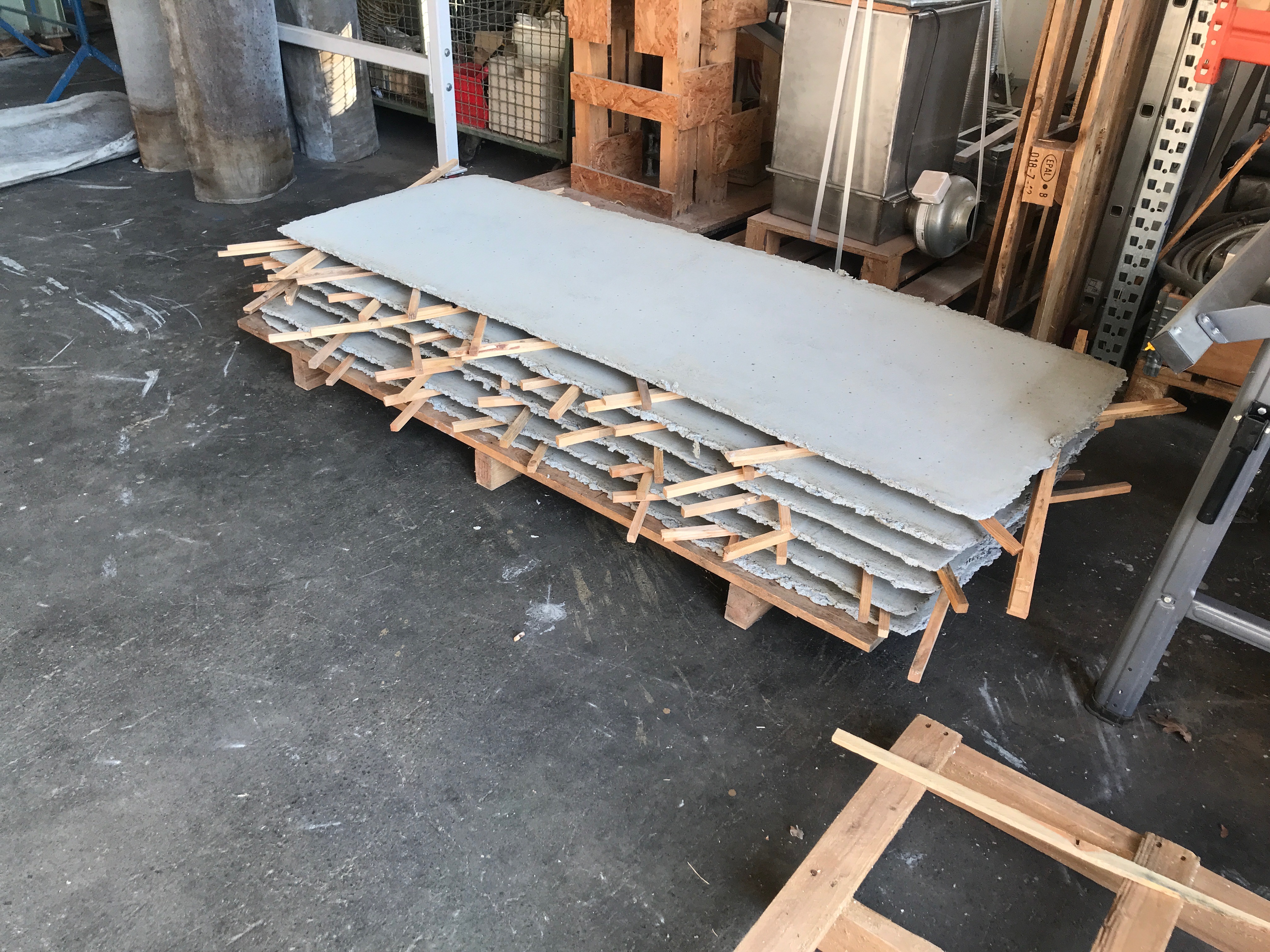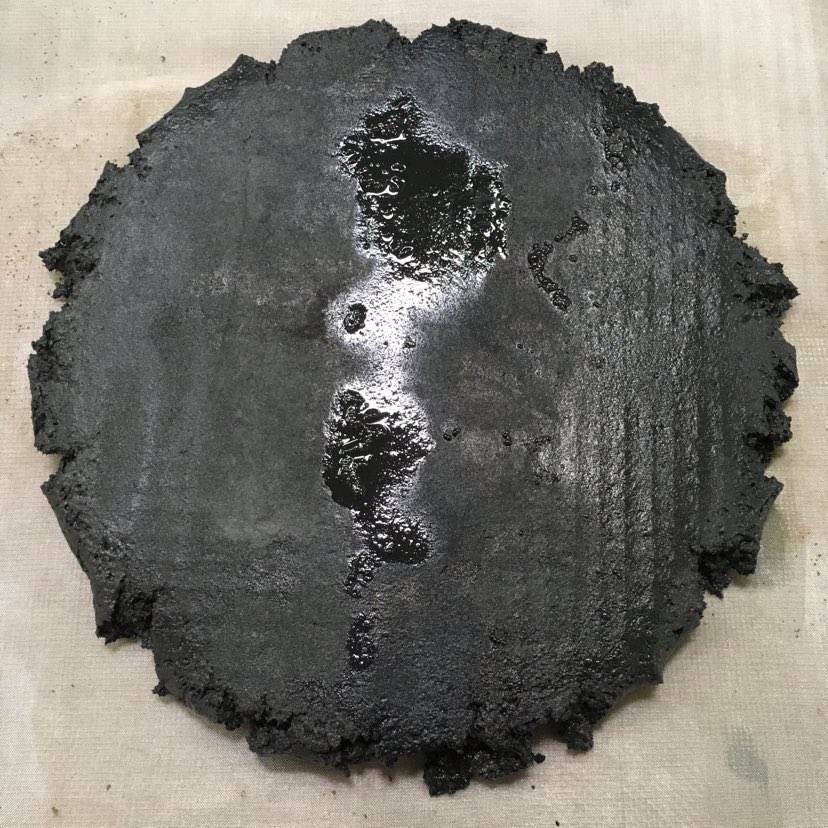“Reflecting on Altering Matter”, Objects
“Matter cannot be created or destroyed but can change from one state to another”
In an almost alchemistic manner, I seeks to demonstrate that materials are more or less born equal and that mainly ‘rarity’ decides their commercial fate and position as ‘Matter of desire’. The message of this installation is that it should become acceptable that ‘matter’ should be removed from the stigma of its position along the chain of use (new versus recycled) and simply taken on face value as this may be a key to a creative and ecological future. This work comprises of a pairing of universal objects, a table and a chair formed from seemingly luxurious polished stone. These objects are examples of ‘deep recycling’ derived from materials which are foraged from far down the materials food chain. Coming from beyond the first round of ‘salvage’ which is recycled paper, they originate from a mountain of ‘De-inking sludge’, which is a residual from the paper recycling and is unusable as a fibre source. These objects are indeed created from the ‘waste of the waste’.
De-inking sludge is comprised mainly of inorganic mineral fillers, short cellulosic fibres and fines (micro fibres), coating polymers and ink particles. Less socially elevated uses are concrete, brick making and energy production. Re-engineered using Zelfo Technology’s process the material becomes clay like, reforming when pressed into a granite like material. Across the surface are organic blooms and dark flecks which betray the origins of the material as being from a non rock like source, thereby rarefying the status of this formerly anonymous ‘sludge.
The potential of my source material in its original low value state not lost but simply unexposed; until now that is. To show this I developed objects which demand that we should be looking harder at the media we use to create with, an approach that follows of a line cast by Julie Shore:- “We are materialistic in the everyday sense of the word, we are not at all materialistic enough in the true sense of the word....we should really care about the materiality of goods”.



